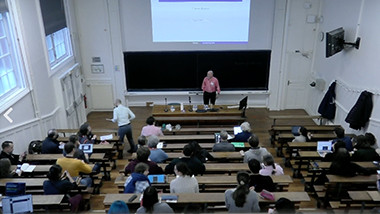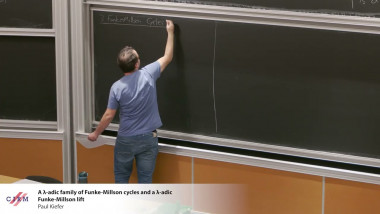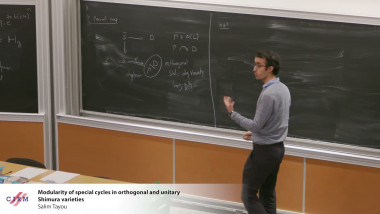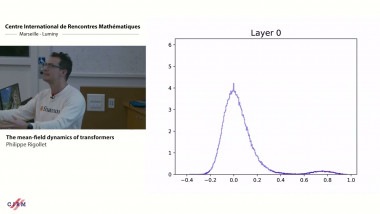Appears in collection : Jean-Morlet Chair 2020 - Workshop: Discrepancy Theory and Applications - Part 1 / Chaire Jean-Morlet 2020 - Workshop : Théorie de la discrépance et applications - Part 1
We are primarily concerned with the distribution of billiard orbits and geodesics in nonintegrable flat dynamical systems, those that exhibit split singularities. This is an area which has been studied over a number of decades by different authors, and many deep results have been obtained.We are particularly interested in results concerning density and uniformity. However, until very recently, the major known results are time-qualitative and do not seem to say anything definite about the necessary time range. Their proofs all use Birkhoff's ergodic theorem, which is quantitative in the sense that it can tell us precisely how often some relevant event is going to take place, but time-qualitative in the sense that it requires unlimited time range.This leads to a very natural question as to what can happen in a realistic finite time scale.In these two talks, we describe a new non-ergodic method which is a combination of combinatorics, number theory and linear algebra, and which leads to time-quantitative results concerning density and uniformity of some billiard orbits and geodesics in many nonintegrable flat dynamical systems. We discuss two versions of the technique, an eigenvaluebased version as well as an eigenvalue-free version which relies on size magnification.This is work with Jozsef Beck, Michael Donders and Yuxuan Yang.















![[1243] Degrés dynamiques](/media/cache/video_light/uploads/video/SeminaireBourbaki.jpg)
